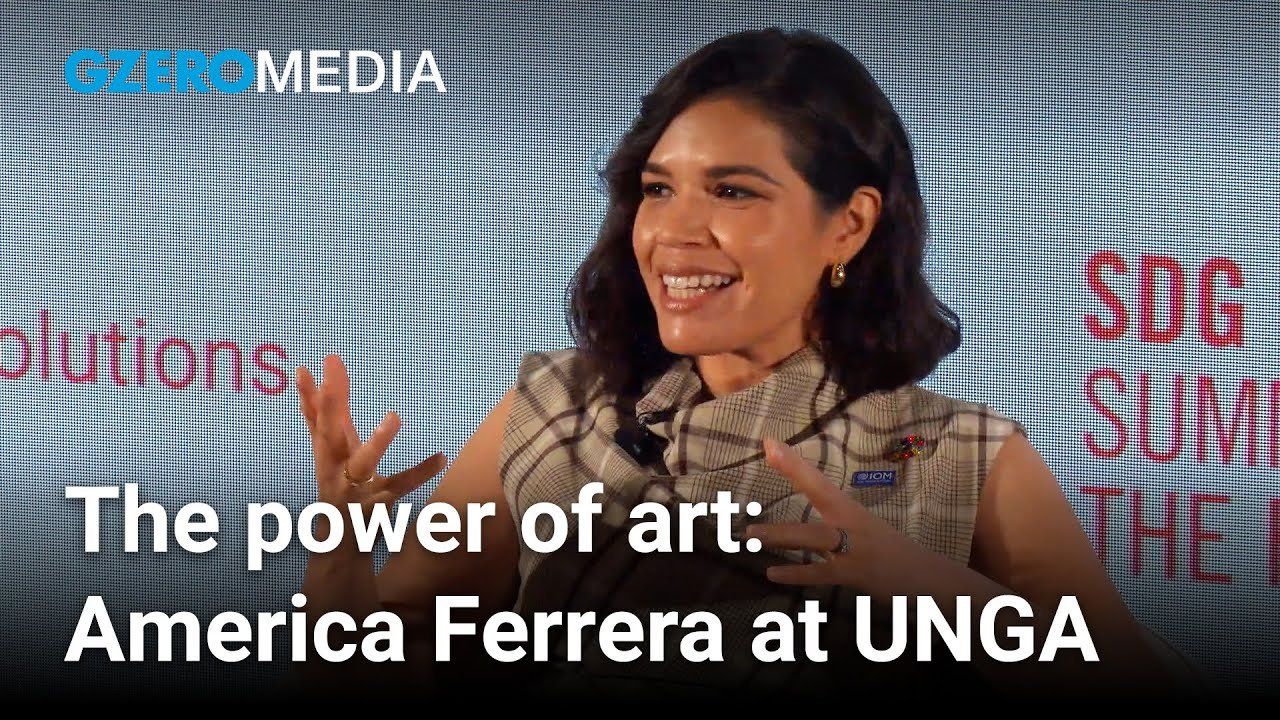
From the SDG Lounge inside the United Nations headquarters during the 79th General Assembly, America Ferrera reflected on the powerful impact of her monologue from the film Barbie, which captivated global audiences. Speaking with GZERO’s own Tony Maciulis during a broader discussion on the power of local and grassroots activism, Ferrera highlighted the unique ability of art to connect with people, contrasting it with political speeches, which can feel distant and agenda-driven. Ferrera emphasized that Barbie—despite being a film about a doll—sparked conversations on important themes like patriarchy and gender equality. With its widespread success, Ferrera believes the film demonstrated how storytelling can resonate across diverse audiences, fostering engagement and dialogue in ways that traditional approaches might not.